Central America
El Salvador is the first country in the Americas in terms of tourism growth

September 26 |
The momentum of the Salvadoran waves was the beginning of an unprecedented tourism takeoff in the history of El Salvador, which was consolidated at the close of 2022 with more than 2.5 million international visitor arrivals, a figure that even surpassed the dynamics that the country maintained in 2019 before the COVID- 19 pandemic.
The country’s good performance attributed to the Surf City anchor strategy, international positioning actions, the potential of tourist destinations, the positive figure of President Nayib Bukele in the world, and state security strategies implemented through the Territorial Control Plan (PTC) were reflected in the latest measurement of the World Tourism Barometer of the World Tourism Organization (UNWTO).
The projection of international visitors by the end of 2023 is 2.9 million. Photo: El Salvador Newspaper.
The measurement reflected that El Salvador is the fourth nation in the world with the best performance in the growth of international tourist arrivals with 32% until July 2023, compared to what it registered in the same period of 2019.
The country is only behind the dynamics reflected by nations such as Qatar, which reports an increase of 95 %; Saudi Arabia with 58 %; and Albania with 56 %, when compared to its pre-pandemic metrics.
In this order, El Salvador also becomes the country with the best performance in the American continent and the Western Hemisphere surpassing important destinations and countries of tourist tradition, noted President Bukele through the social network X, formerly Twitter.
“El Salvador is the fourth country with the highest tourism growth in the world and the destination that has grown the most in the entire Western Hemisphere,” the president celebrated.
The new security conditions have been an incentive to attract more foreigners to visit El Salvador. Photo: El Salvador Newspaper.
The list also highlights the performance of Andorra whose reception of international tourists increased by 31%; Armenia with 30%; Ethiopia with 28%; Colombia and Jordan with 23%; U.S. Virgin Islands with 22%; Tanzania and Liechtenstein with 19%; Curacao with 18%; while Honduras and Dominican Republic grew by 17%.
The barometer highlights that international tourism has continued to recover from the worst crisis in its history, as overall international tourist arrivals reached 84 % of pre-pandemic levels between January and July this year.
“By the end of July, international tourist arrivals reached 84% of pre-pandemic levels and 700 million tourists traveled internationally between January and July 2023, up 43% from the same months in 2022,” UNWTO noted.
At the beginning of this year, Mitur estimated that by 2023 more than 2.9 million foreign visitors would enter the national territory, however, data closed up to August account for more than 2.2 million arrivals, and a greater boom is expected with events such as: the Miss Universe pageant, scheduled for November; and two surfing championships in the months of September and November, among other activities.
“According to our projections we are not going to have any low season month, but rather visitors are going to keep coming thanks to surf tournaments, business events and the Miss Universe that is scheduled for the end of the year”, commented the Minister of Tourism, Morena Valdez, recently.
Meanwhile, the foreign exchange projection for the end of the year is $2.9 billion, and up to August the registered spill over was $2.1 billion in tourism dynamics.
International
VP JD Vance to World Cup visitors: “Enjoy the game, then go home”

U.S. Vice President JD Vance issued a light-hearted but firm warning to international visitors planning to attend the 2026 FIFA World Cup, which will be co-hosted by the United States, Canada, and Mexico.
“We know we’ll have visitors, probably from close to a hundred countries. We want them to come. We want them to celebrate. We want them to enjoy the games,” said Vance during a press conference on Tuesday focused on the organization of upcoming major sporting events in the U.S.
“But when it’s over, they’ll have to go home,” he added.
Vance, speaking in a joking tone, also mentioned Homeland Security Secretary Kristi Noem, saying, “Otherwise, they’ll have to speak with Secretary Noem.”
The comment came during the first joint working session aimed at preparing for the 2026 World Cup, which will feature 48 national teams and take place across multiple cities in North America.
Central America
Thousands of Guatemalan girls forced into motherhood due to sexual violence
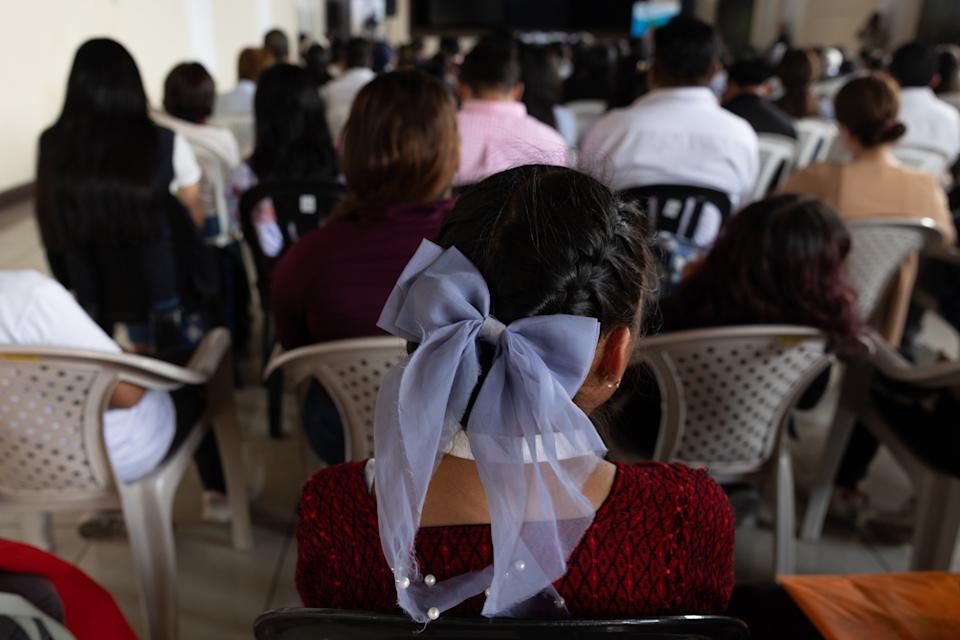
Each year in Guatemala, an average of 2,000 girls aged 10 to 14 become mothers as a result of sexual violence, and 99% of these cases go unpunished, according to a report released Wednesday by the Human Rights Office of the Archdiocese (ODHAG).
“Girls in the country live under state abandonment. They are exposed to a judicial and health system that, upon becoming pregnant, forces them into motherhood and to abandon their life plans,” said Dr. Mirna Montenegro, lead researcher of the investigation, during a press conference.
Montenegro emphasized that between 2022 and 2024, the Ministry of Health recorded 5,937 births to girls aged 10 to 14.
“What’s most alarming is that only 1% of these cases have been brought to court since 2018—just around 100 cases—and this doesn’t mean the accused rapists were convicted,” she stressed.
The investigation also found that the government program “VIDA”, created to support girls who are victims of sexual violence, served only 129 minors in 2024, despite 1,953 pregnancies reported among girls in that age group.
In addition, the report noted that in 2023, 3,064 cases of sexual violence against minors under 19 were reported nationwide. The majority of victims were girls aged 10 to 13.
The areas most affected by child pregnancies include Huehuetenango, Alta Verapaz, and Quiché in the north, as well as Guatemala City in the central region.
According to the most recent Ministry of Health data, as of February 2024, 1,041 girls under 14 had already become mothers. Another 1,005 girls of mestizo origin were also reported to have become mothers due to sexual violence.
Central America
Experts urge action to protect democracy ahead of Honduras elections
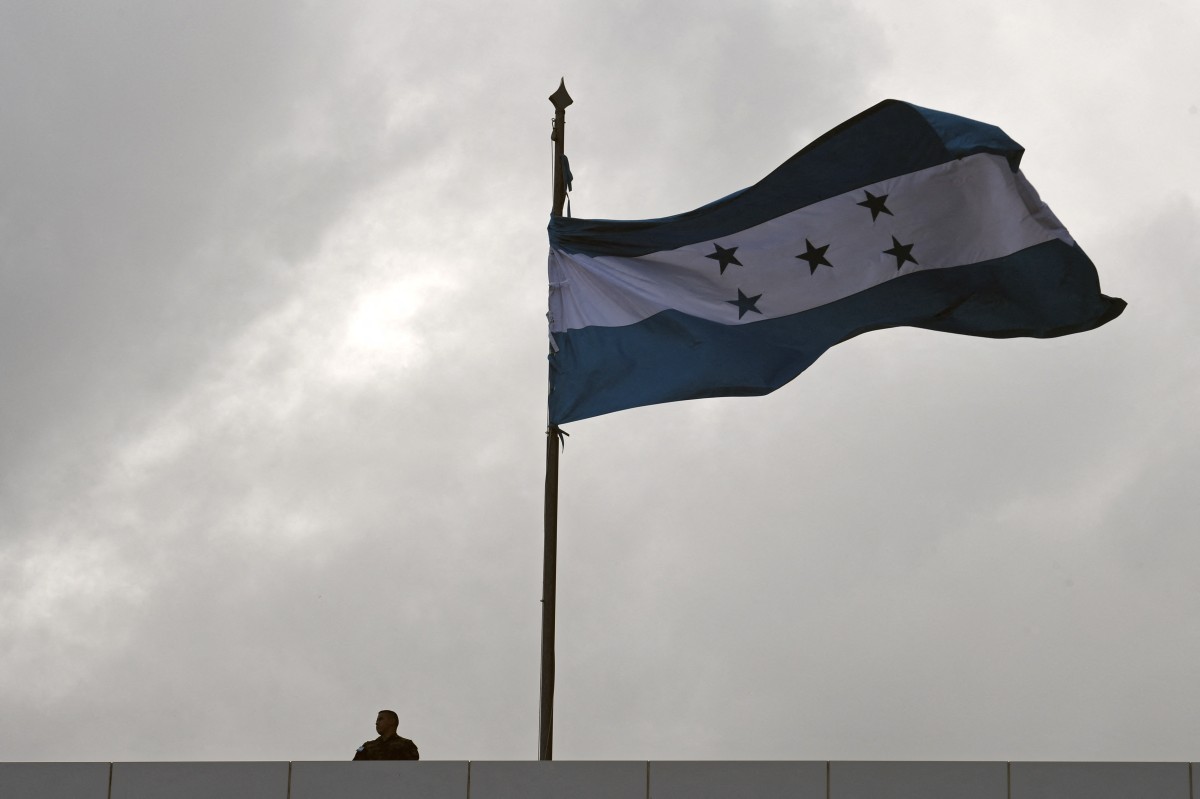
Experts issued an urgent call on Wednesday to confront the threats and systemic flaws that could endanger democracy and civil liberties in Honduras, as the country prepares for its general elections on November 30, when voters will elect a successor to President Xiomara Castro.
César Espinal, coordinator of the Corruption Observatory at the National Anti-Corruption Council (CNA), told EFE that it is crucial to overcome the “atmosphere of uncertainty” generated during the March primaries, which were marred by irregularities in the delivery of electoral materials, causing delays of over twelve hours at several polling centers.
Espinal emphasized that the lack of internal coordination and the institutional weakening of the National Electoral Council (CNE) present major challenges to rebuilding public trust and encouraging strong voter participation.
“We believe that the main challenge lies in the disagreements and lack of coordination within the National Electoral Council, as it is the council members who make key decisions to guide the upcoming electoral process — especially in adhering to the timeline and addressing the various stages from now until November,” he explained.
-

 International4 days ago
International4 days agoHouthis threaten israeli airports, urge airlines to cancel flights
-

 International4 days ago
International4 days agoAmerican Airlines sued after woman alleges sexual assault on flight
-
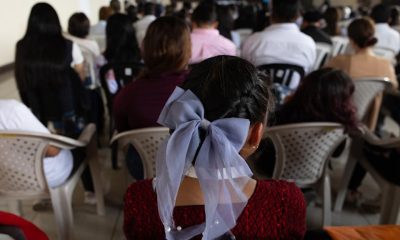
 Central America1 day ago
Central America1 day agoThousands of Guatemalan girls forced into motherhood due to sexual violence
-

 International3 days ago
International3 days agoSinaloa Cartel faction leader ‘Chuy’ Guzmán Castro detained in Mexico amid rising violence
-
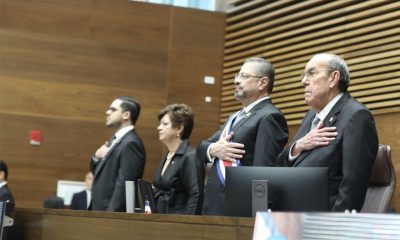
 Central America3 days ago
Central America3 days agoCosta Rica congressional leader warns of authoritarian drift under president Chaves
-

 International3 days ago
International3 days agoProsecutor José Domingo Pérez reinstated in Fujimori corruption case
-

 International3 days ago
International3 days agoSpain approves plan to reduce workweek to 37.5 hours
-

 International3 days ago
International3 days ago“Give me a break”: Trump defends AI image of himself as the Pope
-

 Sin categoría3 days ago
Sin categoría3 days agoPope Francis donated Popemobile transformed into mobile clinic for Gaza’s children
-

 International3 days ago
International3 days agoSheinbaum rejects U.S. military presence in Mexico’s war on drugs
-

 International3 days ago
International3 days agoSins of the Vatican: Scandals, abuse, and a cardinal’s fall from grace
-
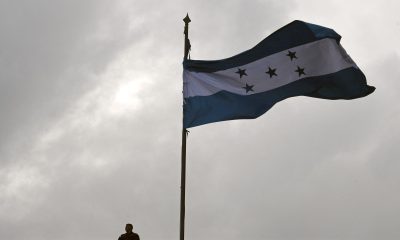
 Central America1 day ago
Central America1 day agoExperts urge action to protect democracy ahead of Honduras elections
-

 International1 day ago
International1 day agoLong wait at the Vatican: experts defend lengthy papal election process
-

 International1 day ago
International1 day agoXiomara Castro’s government vows to protect citizens amid threat reports
-

 Internacionales8 hours ago
Internacionales8 hours ago“A great honor for our country”: Trump congratulates Pope Leo XIV
-

 International8 hours ago
International8 hours agoBill Gates accuses Elon Musk of endangering the world’s poorest children
-

 International7 hours ago
International7 hours agoGates Foundation to close by 2045 as Bill Gates pledges to donate $200 Billion
-

 International8 hours ago
International8 hours agoVP JD Vance to World Cup visitors: “Enjoy the game, then go home”
-

 International8 hours ago
International8 hours agoStrong winds cause stage collapse in Mexico City; seven hurt

















